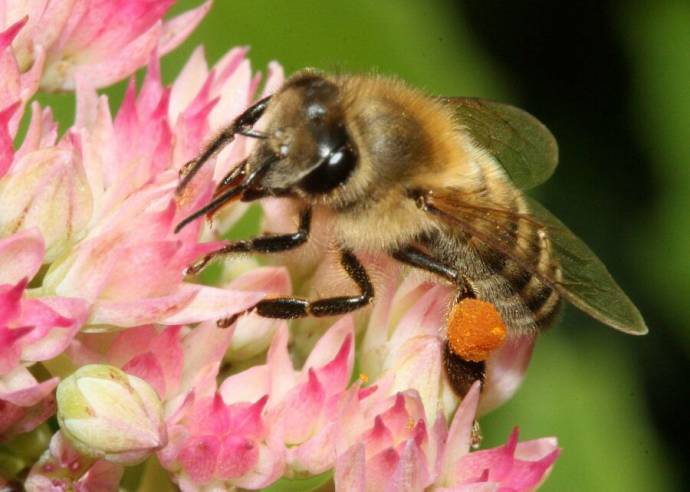According to Noč, beekeepers are worried when they see farmers mow their meadows before they come to bloom. "We must bring flowers back to meadows. Thus we'll save not only bees, but also bumblebees, butterflies and other pollinators," he said.
He finds it crucial that plants such buckwheat, phacelia and sunflower return to Slovenian fields and that farmers start to rotate crops. "This reduces the use of pesticides and creates a late harvest for bees," he said.
Honey plants should also be planted in urban open spaces, on windows and balconies.
The state is already offering some incentives, such as subsidies for late mowing but more will need to be done to raise people's awareness, Noč said.
It has been proven that bees indirectly bring some EUR 120m to the Slovenian agriculture and nature, while the entire beekeeping sector receives only EUR 1.5m from the state through various programmes a year, he stressed.
He would like the state to support beekeeping with more funds. An average beekeeper - there are some 11,000 in the country - has some 20 bee families (one family has about 60,000 bees in the summer and up to 15,000 in the winter).
This means he has to have 20 beehives, a bee house and beekeeping equipment. All this costs some EUR 15,000.
The state funds the first three beehives and offers free workshops. "Another EUR 300,000 is available a year for equipment, which is absolutely too little."
Noč thinks there should be direct subsidies available for beekeepers, who must provide water to bees in the summer and feed them during the winter.
This is why beekeepers are pushing for bees to be declared an endangered species and World Bee Day is one form of pressure to achieve this.
"By having bees declared endangered, a whole series of measures become accessible ... and both European and state funds are allocated for their protection. The agricultural policy will then also need to be adjusted."
According to Noč, the initiative will be presented to officials in Brussels shortly, including to the European Commissioner for Environment, Maritime Affairs and Fisheries, Carmenu Vella, who will attend a ministerial to mark the first World Bee Day in Slovenia at the weekend.
Noč said the commissioner had informally already expressed his support for the proposal.
"Once the bee is declared endangered, a beekeeper will be eligible for direct subsidies for nurturing bees, which is only fair, as bees are 90% socially and only 10% commercially useful."
Noč is confident that Slovenia as a country with a long tradition in beekeeping could offer know-how to help develop beekeeing also in developing and undeveloped countries.
He also called for more research into the use of bee products for health purposes. Currently, the Beekeepers' Association and the Ljubljana University Medical Centre (UKC) are conducting clinical research into the effects of bee sting on Parkinson's disease.
"The official medicine has finally tapped into this filed. It's a very important thing and a big step forward," Noč said.
He also sees opportunities in apitherapy, apitourism and development of new honey products. He envisages a close cooperation with spas and tourist offices. "Every tourist should leave the country with a honeybee product."
Slovenian bees survived this winter well and there has also been no pesticide-related deaths.
However, because January was unseasonably warm and March cold, bees are unequally developed. There are currently 150,000 to 170,000 bee families in Slovenia.
Slovenian beekeepers meet about 50% of the country's needs for honey. In normal circumstances, 2,000-2,500 tonnes of honey are produced annually. An average Slovenian consumes only two kilogrammes of honey per year.
In the last five years, the annual production has been below the long-term average, mainly due to adverse weather conditions.
"Bees do not cope well with extreme weather conditions such as rapid temperature rise or fall, or storms. These are a major stress for bees. Since there is increasingly a lot of such phenomena every year, nurturing bees is becoming increasingly difficult," Noč said.






